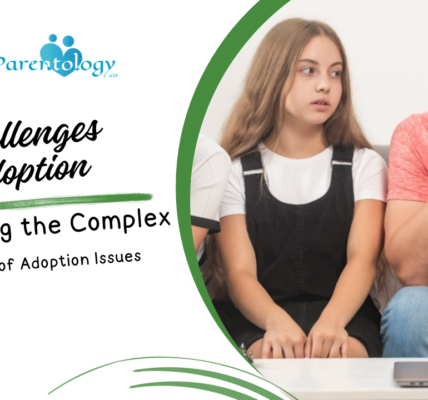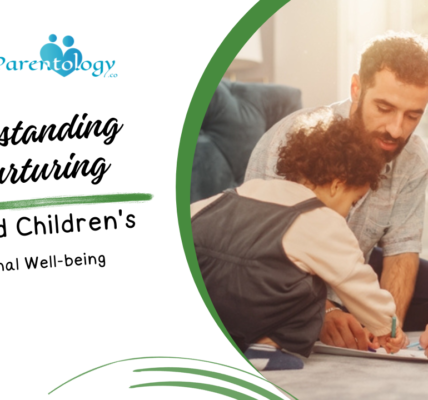Unveiling Adopted Child Syndrome: 7 Causes, Impactful Effects, and 9 Preventive Strategies
The journey of adoption is a profound and rewarding experience, yet it comes with its unique challenges. “Adopted Child Syndrome” denotes the emotional and psychological complexities experienced by some adopted children, impacting their well-being. Understanding its causes, effects, and preventive strategies is vital to nurturing a positive environment for adopted children’s growth and development.
Causes of Adopted Child Syndrome
Adopted Child Syndrome can stem from various factors:
- Early Trauma and Loss: Separation from birth parents and frequent changes in living environments can deeply impact an adopted child’s emotional stability, causing profound distress and uncertainty about their sense of security and belonging.
- Identity Confusion: Adopted children may grapple with questions about their origins, leading to identity crises. The lack of clarity about their past and roots might hinder the formation of a cohesive sense of self.
- Attachment Issues: Disrupted early attachments or inconsistent caregiving experiences can affect the child’s ability to trust and form secure emotional connections with others, contributing to attachment difficulties.
- Unresolved Grief: The absence of closure regarding the separation from birth family and the absence of rituals or acknowledgment of loss can lead to unresolved grief, impacting emotional well-being.
- Lack of Information: Insufficient knowledge about their biological heritage, medical history, or cultural background may create anxiety and a sense of void regarding their personal identity.
- Parent-Child Mismatch: The clash between the adopted child’s personality, temperament, or behavior with adoptive parents’ expectations and parenting styles might lead to conflicts and adjustment difficulties.
- Social Stigma: External societal biases, misunderstandings, or discrimination towards adoption may subject adopted children to feeling different or ostracized, impacting their self-esteem and confidence.


Effects of Adopted Child Syndrome:
- Behavioral Challenges: Adopted children might exhibit behavioral issues such as aggression or withdrawal due to unaddressed emotional distress, leading to difficulties in social interactions.
- Identity Crisis: A persistent struggle to define oneself or find a sense of belonging and identity can cause emotional turmoil and impact self-esteem and self-worth.
- Mental Health Concerns: Adopted children might experience anxiety, depression, or post-traumatic stress disorder, stemming from unresolved trauma and emotional upheaval related to their adoption journey.
- Academic Struggles: Difficulties in concentrating or academic performance might arise due to emotional distress, impacting their ability to focus and engage in learning environments.
- Relationship Issues: Challenges in forming and maintaining relationships may surface due to trust issues, impacting friendships and familial connections.
- Low Self-Esteem: Feelings of inadequacy or unworthiness might persist due to a sense of abandonment or rejection, affecting self-confidence.
- Adoption-Specific Challenges: Coping with questions about their origins and dealing with curiosity from peers or societal inquiries can be emotionally taxing, creating additional stressors.


Preventive Measures for Adopted Child Syndrome:
- Open Communication: Encouraging open dialogue about adoption, emotions, and personal history fosters a safe space for the child to express feelings and concerns.
- Therapeutic Support: Seeking professional counseling or therapy helps the child navigate complex emotions, providing tools for coping and healing.
- Educational Resources: Providing age-appropriate information about adoption helps normalize their experiences and instills a sense of acceptance.
- Create a Support Network: Connecting with other adoptive families or support groups creates a sense of community and shared experiences, offering valuable insights and solidarity.
- Celebrate Differences: Embracing and acknowledging the child’s unique heritage and identity fosters a positive self-image and self-acceptance.
- Establish Routines: Consistency and predictability in daily routines provide stability and a sense of security for the child.
- Promote Self-Expression: Encouraging the child’s interests, hobbies, and creative expression builds confidence and self-worth.
- Unconditional Love and Acceptance: Demonstrating unwavering support, love, and acceptance helps the child feel valued and secure, irrespective of challenges.
- Professional Guidance: Seeking guidance from adoption experts or professionals ensures access to specialized knowledge and assistance in navigating specific adoption-related issues.
These descriptions aim to provide concise insights into the causes, effects, and preventive measures related to Adopted Child Syndrome.


Supporting Adopted Children:
Understanding the challenges faced by adopted children is crucial for providing the necessary support and nurturing environments. Here are additional aspects to consider:
- Cultural Awareness: Embracing and celebrating the child’s cultural background fosters a sense of pride and connection to their heritage. Engaging in cultural activities, learning about traditions, and acknowledging diverse customs enriches their identity.
- Trauma-Informed Care: Recognizing and addressing the potential impact of early trauma requires a trauma-informed approach. Sensitivity towards triggers and providing a safe, empathetic environment are paramount.
- Validation of Feelings: Validating the child’s feelings, even when difficult emotions arise, creates an atmosphere of acceptance. Encouraging open discussions and validating their experiences fosters trust and emotional well-being.
- Educational Advocacy: Collaborating with educators and school authorities to ensure that teachers are sensitive to the unique needs of adopted children. Providing necessary information about the child’s background can aid teachers in offering appropriate support.
- Self-Empowerment: Encouraging autonomy and decision-making skills empowers the child to build resilience and confidence. Allowing them to make choices within safe boundaries fosters independence and self-assurance.
- Trauma Healing Techniques: Exploring therapeutic techniques like play therapy, art therapy, or mindfulness activities tailored to address trauma can aid in emotional healing and regulation.
- Parental Self-Care: Recognizing the demands of parenting an adopted child and prioritizing self-care is crucial. Taking breaks, seeking support from therapists or support groups, and practicing self-compassion are essential for parental well-being.
Embracing the Adoption Journey:
Adoption is a unique journey filled with love, complexities, and growth. Embracing the challenges and joys it brings is fundamental for the holistic development of the adopted child. By creating a nurturing, understanding, and supportive environment, parents and caregivers can significantly impact the well-being and resilience of their adopted children.
Building Trust and Security:
- Consistency and Predictability: Establishing routines and maintaining consistency in daily activities can provide a sense of stability and security for adopted children. Predictability in schedules and environments fosters a feeling of safety.
- Building Trusting Relationships: Encouraging and nurturing strong bonds between the child and caregivers is essential. Showing unconditional love, being present, and actively listening to their concerns help build trusting relationships.
- Acknowledging Emotions: Validating and acknowledging the child’s emotions, even the challenging ones, creates an environment where they feel heard and understood. Encouraging emotional expression without judgment is crucial for emotional development.
Educational Support Strategies:
- Individualized Approach: Recognizing that each adopted child has unique needs and learning styles is pivotal. Tailoring educational approaches to accommodate their individual strengths and challenges can facilitate academic success.
- Teacher Collaboration: Collaborating with teachers to create an inclusive and supportive classroom environment is beneficial. Providing teachers with insights into the child’s background helps them offer appropriate support.
Encouraging Positive Identity Formation:
- Exploring Heritage and Roots: Facilitating opportunities for the child to explore and learn about their cultural heritage or background cultivates a sense of belonging and pride in their identity.
- Positive Self-Image: Fostering a positive self-image by highlighting the child’s strengths, talents, and accomplishments boosts self-esteem and confidence.
Therapeutic Interventions:
- Play Therapy: Utilizing play as a therapeutic tool allows the child to express themselves freely, aiding in emotional processing and healing.
- Art Therapy: Engaging in creative activities like drawing, painting, or storytelling can serve as a medium for self-expression and emotional release.
Parental Education and Support:
- Continuous Learning: Educating oneself about adoption-related issues, trauma, and effective parenting strategies is an ongoing process. Attending workshops, seeking guidance, and accessing resources aid in better understanding and support.
- Support Networks: Connecting with other adoptive families or support groups offers a sense of community, shared experiences, and valuable insights. Sharing experiences and learning from others can be immensely beneficial.
Celebrating Progress and Resilience:
- Acknowledging Milestones: Celebrating achievements, no matter how small, acknowledges the child’s progress and resilience, fostering a positive environment.
By implementing these strategies and approaches, caregivers and parents can create an environment that supports the emotional, social, and psychological well-being of adopted children, fostering healthy development and resilience.
FAQs on Adopted Child Syndrome:
Q 1: What are the signs that an adopted child may be struggling emotionally?
Answer 1: Emotional struggles in adopted children might manifest as withdrawal, aggression, persistent sadness, or difficulty in forming connections.
Q 2: How can adoptive parents support an adopted child dealing with identity issues?
Answer 2: Open communication, sharing adoption stories positively, and exploring their heritage help in forming a positive identity.
Q 3: Is Adopted Child Syndrome prevalent in all adoptive situations?
Answer 3: Not every adopted child experiences this syndrome, but many may face challenges related to their adoption journey.
Q 4: Can therapy help an adopted child cope with the effects of Adopted Child Syndrome?
Answer 4: Yes, therapy provides a safe space to address emotional issues and develop coping strategies.
Q 5: Should adoptive parents disclose adoption details to the child?
Answer 5: Yes, age-appropriate information about adoption is vital for the child’s understanding and self-acceptance.
Q 6: Do adopted children face challenges in forming relationships?
Answer 6: Some adopted children might experience trust issues, affecting their ability to form and maintain relationships.
Q 7: Are there unique challenges for internationally adopted children?
Answer 7: Yes, international adoption might involve cultural adjustments and language barriers, posing additional challenges.
Q 8: Can adopted children overcome the effects of Adopted Child Syndrome with proper support?
Answer 8: With a supportive environment, many adopted children can navigate and thrive despite challenges.
Q 9: How can educators assist adopted children in classrooms?
Answer 9: Educators can create inclusive environments, offer emotional support, and be sensitive to their unique needs.
Q 10: How does societal perception impact an adopted child’s well-being?
Answer 10: Negative societal perceptions might affect the child’s self-esteem and sense of belonging.
Conclusion:
In conclusion, understanding and addressing Adopted Child Syndrome require a multifaceted approach involving emotional support, open communication, access to resources, and a nurturing environment. By embracing the uniqueness of each adopted child’s journey and providing tailored support, caregivers can help foster resilience and a positive sense of self.
For further insights and resources on supporting adopted children, visit Parentology where you’ll find valuable information and guidance.




